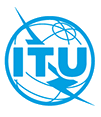Broadband Connectivity for the Unconnected
| Project No | 2GLO20110 | |
| Title | Broadband Connectivity for the Unconnected | |
| Description |
The demand for broadband connectivity for the digital society (education, future jobs, public services, etc.) requires fast and reliable connectivity to the Internet. On the other hand, in many developing countries, connectivity is mostly limited to urban areas, leaving rural and remote areas unconnected, often considered to not be economically attractive for the mobile service providers. This project is an effort to support ITU Member States in delivering full and sustainable connectivity. It proposes various technical, regulatory and business solutions, capacity building and country assistance that could be used to increase last mile connectivity and help extend broadband connectivity to populations and areas that are left unconnected. The project will develop a set of tools and solutions, customized and contextualized to different localities. In addition, capacity building and technical assistance, in implementing the contextualized solutions, will be provided to several selected pilot countries. The project will be structure in the following four phases: • Phase 1: Development of guidelines. • Phase 2: Development of software tools. • Phase 3: Capacity building material and workshops. • Phase 4: Assistance for pilot implementation. |
|
| Area of Action |
Technology & Network Development Capacity Building |
|
| Status | Implemented | |
| Time Frame | From 1/1/2021 To 31/3/2025 | |
| Implementing Agency | International Telecommunication Union (ITU) | |
| Cooperation Agency | Ministry of Science and ICT (MSIT), Republic of Korea | |
| Financial Scale (CHF) | 100'000 - 500'000 | |
| Achievements | The project achieved several milestones, including updating the Last Mile Connectivity Solutions Guide in 2021, developing the Middle-Mile Broadband Calculation Tool in Q3 and Q4 of 2021, and creating the Global Connectivity Tool in Q1 and Q2 of 2021. Additionally, the project introduced the Regulations & Policy Tool in Q2 and Q3 of 2021, developed capacity building materials in Q3 and Q4 of 2021, launched online courses in Q4 of 2021, and conducted face-to-face hands-on training in pilot countries in Q4 of 2021. | |
|
Request more information about this project |
||


